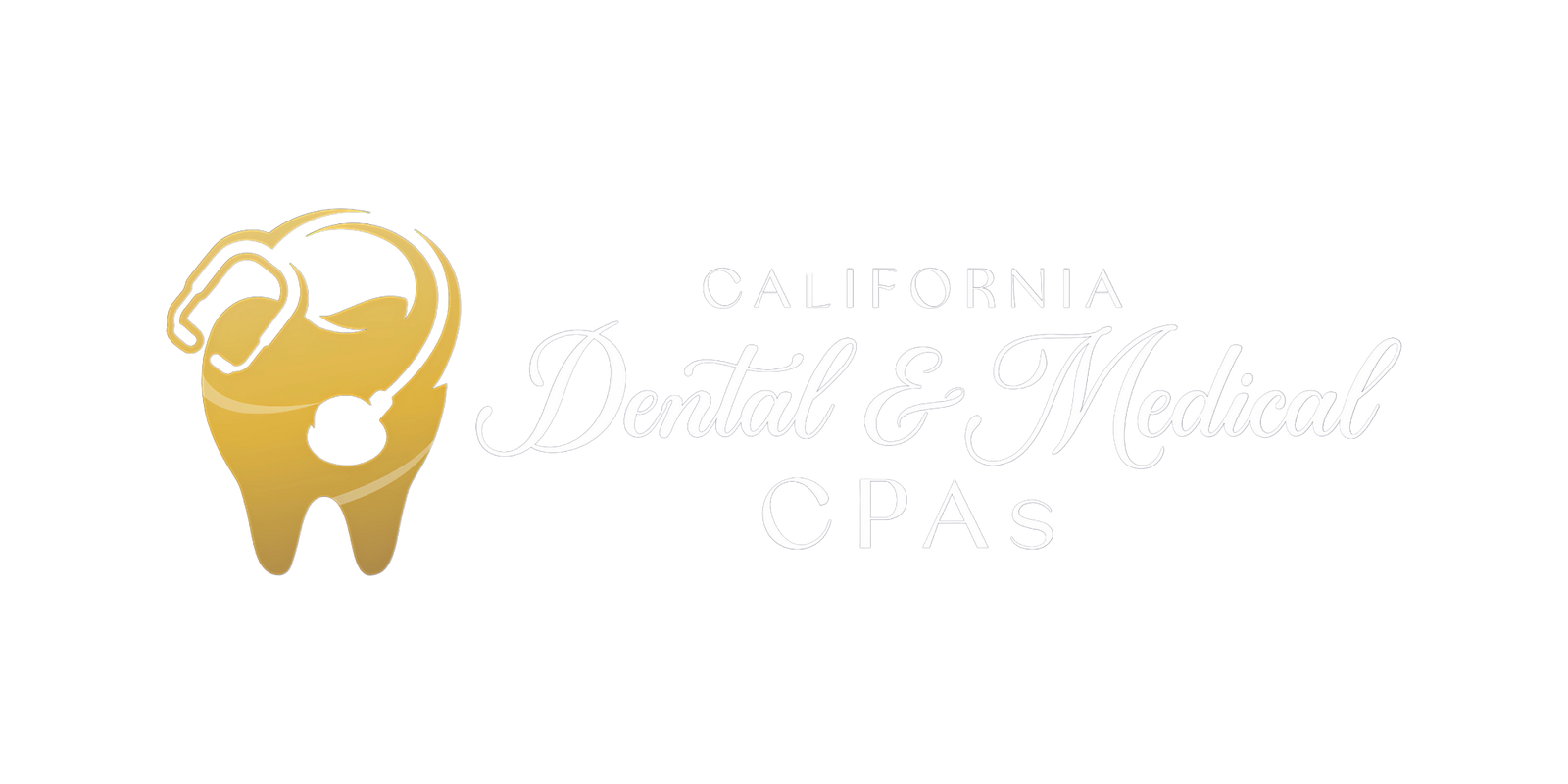Running a dental practice in Newport Beach, CA, means you’re dealing with a lot more than just patient care. Keeping your practice’s finances in order is a big part of that. Good bookkeeping for dentists isn’t just about tracking money; it’s about making sure your practice stays healthy and grows. This guide will walk you through the basics of dental bookkeeping and how to avoid common money mistakes.
Key Takeaways
- Separating your business and personal finances is the first step to clear bookkeeping.
- Using a dental-specific chart of accounts helps organize your practice’s financial data.
- Regularly checking your bank statements against your records is important for accuracy.
- Modern accounting software can make tracking income and expenses much simpler.
- Focusing on key financial numbers helps you make smarter decisions for your practice.
The Foundation of Financial Health: Essential Bookkeeping Practices

Getting your dental practice’s finances in order starts with a solid bookkeeping foundation. It’s not just about tracking numbers; it’s about understanding the financial pulse of your business. Without this clarity, making smart decisions about growth, investments, and even daily operations becomes a guessing game. Think of your bookkeeping as the bedrock upon which your practice’s stability and future success are built. In the competitive Newport Beach market, strong financial management sets you apart.
Keeping business and personal funds separate
This is a big one, and honestly, it’s where a lot of small businesses stumble. Mixing your personal checking account with your practice’s income and expenses is a recipe for confusion and potential tax headaches. You absolutely must maintain separate bank accounts and credit cards for your business. This makes tracking income and expenses much cleaner and simplifies tax preparation. It also presents a more professional image to vendors and financial institutions. Imagine trying to explain to the IRS why your grocery receipts are mixed in with dental supply invoices – it’s just not a good look.
Using a dentistry-specific Chart of Accounts (COA)
A Chart of Accounts is like the filing system for your finances. It categorizes every financial transaction. For a dental practice, a generic COA won’t cut it. You need one tailored to your industry. This means having specific accounts for things like:
- Patient Revenue (broken down by service type if possible)
- Insurance Reimbursements
- Dental Supplies Expense
- Lab Fees
- Equipment Leases
- Payroll Expenses
- Marketing Costs
Having these specific categories, like those found in a well-structured dental accounting system, allows you to see exactly where your money is coming from and going to. This detailed view is invaluable for identifying trends and areas for improvement.
Importance of regular reconciliation
Reconciliation is the process of comparing your internal financial records with external statements, like your bank and credit card statements. This step is non-negotiable for accuracy. It’s how you catch errors, identify unauthorized transactions, and prevent fraud. If your bank statement shows a different balance than your accounting software, reconciliation helps you find out why. Doing this monthly, at a minimum, provides a clear picture of your actual financial standing and helps avoid surprises down the road. It’s a critical check to ensure your financial data is reliable.
Optimizing Operations with Modern Bookkeeping Tools

In today’s fast-paced dental environment, outdated bookkeeping methods can really hold your practice back. Embracing modern tools isn’t just about staying current; it’s about making your financial management more efficient and insightful. Think of it as upgrading from a flip phone to a smartphone – suddenly, you have access to so much more information and capability.
Leveraging cloud-based accounting software
Cloud-based accounting software is a big deal for dental practices. It lets you access your financial data from anywhere, anytime, which is super handy if you’re often on the go or working remotely. Plus, these systems usually update automatically, meaning you’re always working with the latest version and features. This kind of software can really simplify things like invoicing and expense tracking. Many practices find that using a system like QuickBooks or similar platforms makes managing their finances much smoother. It’s a smart move for any practice looking to streamline operations and get a clearer financial picture. You can find great resources on dental bookkeeping services to help you choose the right software.
Tracking income and expenses accurately
Accurate tracking of income and expenses is the backbone of good bookkeeping. For a dental practice, this means meticulously recording every payment from patients and insurance companies, as well as every cost associated with running your office – from dental supplies to staff salaries. Without this precision, you can’t truly understand your practice’s profitability. Detailed record-keeping is non-negotiable for making informed business decisions. For instance, knowing exactly how much you spend on specific procedures or supplies can highlight areas where you might be overspending or where costs can be reduced. This level of detail is much easier to achieve with dedicated accounting software.
Reviewing financial statements regularly
Looking at your financial statements regularly is like getting a regular check-up for your practice’s financial health. You should be reviewing your Profit and Loss (P&L) statement, balance sheet, and cash flow statement at least monthly. These documents tell a story about your practice’s performance. Are you bringing in enough revenue? Are your expenses under control? Is your cash flow healthy enough to cover upcoming costs? For example, a declining collection rate on your P&L might signal a need to review your billing and collection procedures. Regularly analyzing these reports helps you spot trends and address issues before they become major problems. This proactive approach is key to sustained financial success and growth in your practice.
Maximizing Profitability Through Smart Financial Management

Cash flow management strategies for dental practices
Keeping a steady flow of cash is like the lifeblood of your dental practice. It means you can pay your staff, buy supplies, and even invest in new equipment without breaking a sweat. Good cash flow management helps you avoid those stressful moments when bills are due but the money isn’t quite there. One way to get a handle on this is to really watch your accounts receivable. Know exactly who owes you money and when it’s due, and follow up quickly on any late payments. Also, see if you can work with your suppliers to get better payment terms. Sometimes, just shifting when you pay bills can make a big difference in your day-to-day cash situation. Regularly checking your cash flow statements will show you if you’re heading for a shortfall before it becomes a problem. This proactive approach is key to keeping your practice running smoothly and ready for growth opportunities.
Utilizing dental-specific tax deductions
When it comes to taxes, dentists have unique opportunities to reduce their liability. It’s not just about knowing what expenses are deductible, but understanding the nuances specific to healthcare practices. For instance, you can often depreciate expensive dental equipment and software over time, which can lead to significant tax savings. Make sure you’re tracking all your business expenses, including continuing education courses, professional memberships, and even your own dental care costs if they relate to maintaining your ability to practice. Exploring retirement plans is another smart move; setting up a plan can lower your current tax bill while you save for the future. Working with a CPA who understands the medical industry can help you identify all available deductions, ensuring you’re not overpaying the IRS. This is where specialized knowledge really pays off for your practice.
Tracking Key Performance Indicators (KPIs)
Bookkeeping isn’t just about recording numbers; it’s about understanding what those numbers mean for your dental practice. By tracking and analyzing Key Performance Indicators (KPIs), you can gain insights into your practice’s strengths and weaknesses. This data-driven approach allows you to make informed decisions that drive growth and improve profitability. Here are some KPIs to consider:
- Patient Acquisition Cost: How much does it cost to bring in a new patient?
- Revenue Per Patient: How much revenue are you generating from each patient?
- Overhead Percentage: What percentage of your revenue is going towards overhead expenses?
- Collection Rate: What percentage of your billings are you actually collecting?
By monitoring these KPIs regularly, you can identify trends, spot potential problems, and make adjustments to your business strategy. For example, if you notice that your patient acquisition cost is increasing, you might need to re-evaluate your marketing efforts. Or, if your collection rate is declining, you might need to improve your billing and collection processes. Understanding your practice’s financial health is the first step toward strategic growth. For help with this, consider looking into dental accounting services.
Making informed decisions based on accurate financial data is what separates a thriving practice from one that’s just getting by. It’s about having a clear financial roadmap.
Avoiding Common Bookkeeping Pitfalls in Your Dental Office
Getting your bookkeeping right is a game changer for dental practices in California. Sticking to solid practices like keeping accurate records, regularly reviewing your finances, and using the right tools can help you steer clear of costly mistakes. It’s not just about crunching numbers; it’s about understanding your practice’s financial health. This knowledge helps you make better decisions, whether it’s about investing in new technology or managing your cash flow. So, take the time to set up a strong bookkeeping system. It’ll pay off in the long run, helping your practice thrive in a competitive landscape.
Risks of relying on spreadsheets
While spreadsheets might seem like a simple solution for tracking finances, they can quickly become a major source of errors for a busy Newport Beach CA dental practice. Manual data entry is prone to mistakes, and as your practice grows, managing multiple spreadsheets for different aspects of your business becomes unmanageable. This can lead to inaccurate financial reports, making it difficult to assess your practice’s true performance. For instance, a simple typo could misrepresent your income or expenses, leading to poor business decisions. It’s far better to use dedicated accounting software designed for businesses.
The danger of making decisions based only on bank balance
Looking only at your bank balance to gauge your practice’s financial health is like trying to diagnose a patient by only checking their temperature. It’s a superficial view that misses critical information. Your bank balance doesn’t account for upcoming expenses, outstanding invoices, or accrued liabilities. For example, a healthy bank balance might look good, but if you have significant unpaid bills or uncollected patient payments, you could be facing a cash flow crunch sooner than you think. Understanding your full financial picture, including accounts receivable and payable, is key to improving cash flow management for dental practices in Newport Beach in Newport Beach. Outsourced bookkeeping services for dentists Newport Beach can provide this clarity.
Relying solely on your bank balance for financial decisions is a risky approach that can lead to unexpected shortfalls and missed opportunities for growth. A comprehensive view of your finances is necessary for sound strategic planning.
The Strategic Advantage of Professional Bookkeeping Services

Running a dental practice in Newport Beach means you’re juggling patient care, staff management, and business growth. Sometimes, the financial side of things can feel overwhelming. Bringing in professional bookkeeping services can be a smart move to get your finances in order and free up your time. It’s not just about having someone else do the numbers; it’s about gaining a partner who understands the unique financial landscape of healthcare providers.
When to consider outsourcing your bookkeeping
If you find yourself spending too much time on financial tasks instead of patient care, it might be time to consider outsourcing. Other signs include:
- Struggling to keep up with financial record-keeping due to a busy schedule.
- Uncertainty about tax regulations or maximizing deductions specific to dental practices.
- Difficulty generating clear financial reports to inform business decisions.
- Experiencing errors or inconsistencies in your financial data.
Many practices find that outsourcing allows them to reclaim valuable hours and reduce stress. It’s about focusing on what you do best – providing excellent dental care – while experts handle the financial complexities. For practices in California, working with professionals familiar with state-specific tax laws can be particularly beneficial, potentially leading to easier in-person consultations and local professional connections [acd6].
Benefits of outsourcing to dental-specific bookkeeping services
Partnering with a bookkeeping service that specializes in dentistry offers distinct advantages. They understand the nuances of dental practice revenue streams, such as insurance reimbursements and patient payments, as well as common expenses like dental supplies and equipment leases. This specialized knowledge means:
- Accuracy and Compliance: Professionals ensure your books are accurate and comply with all relevant regulations, reducing the risk of penalties.
- Time Savings: Reclaim hours spent on data entry, reconciliation, and report generation. This time can be reinvested into patient acquisition and retention.
- Strategic Insights: Gain access to financial analysis and reporting that helps you understand your practice’s performance, identify trends, and make informed decisions about growth and investment. A local CPA familiar with California’s specific tax laws provides invaluable insight [d087].
- Tax Optimization: Benefit from experts who know how to identify and claim dental-specific tax deductions, potentially lowering your overall tax liability.
Ultimately, outsourcing your bookkeeping isn’t just about offloading tasks; it’s about gaining a strategic financial advantage that supports the long-term health and profitability of your Newport Beach dental practice.
Getting professional bookkeeping help can really give your business an edge. It means you can focus on what you do best, knowing your finances are in good hands. This kind of support helps you make smarter choices and keeps your business running smoothly. Want to see how we can help your business grow? Visit our website today!
Final Thoughts on Financial Health for Your Practice
So, we’ve talked about why keeping good financial records is a big deal for your dental practice here in Newport Beach. It’s not just about avoiding trouble with taxes or fines, though that’s important. Really, it’s about knowing where your money is going so you can make smarter choices for your business. Whether that means investing in new tech, hiring more staff, or just making sure you have enough cash on hand to cover everything, solid bookkeeping gives you that clarity. Don’t let the numbers overwhelm you; getting organized now will help your practice run smoother and grow stronger in the long run. Consider looking into specialized help if you need it – it can make a real difference.
Frequently Asked Questions
Why is keeping track of money so important for dental offices in California?
Keeping good records of your money helps dental offices know if they are making or losing money. It also helps them avoid problems with rules and laws, and make smarter choices for the future.
What are some common mistakes dentists make with their bookkeeping?
Common slip-ups include not writing down all the money spent, forgetting to check if bank records match office records, and not using the best computer programs for the job.
How do I set up a good system for tracking my dental practice’s money?
You can set up your accounts by making different groups for money that comes in, like from patients or insurance, and money that goes out, like for supplies or salaries. This makes it easier to see where your money is going.
What computer programs are good for dental office bookkeeping?
Many dental offices use computer programs like QuickBooks. These programs can help manage patient payments and insurance claims, making the bookkeeping process smoother.
How often should I check my office’s financial papers?
It’s a good idea to look at your financial records every month. This way, you can catch any mistakes early and make sure everything is correct.
What is cash flow, and why does it matter for my dental practice?
Tracking your cash flow means watching how money enters and leaves your practice. It’s important because it makes sure you have enough money to pay for everything you need to run the office.
What tax rules are special for dental offices?
Dental offices can often subtract costs like new equipment, paying staff, and office supplies from their taxes. It’s wise to stay updated on the latest tax rules.
Should I think about hiring someone to handle my bookkeeping?
Yes, hiring someone else to do your bookkeeping can save you time and make sure it’s done right. This lets you focus more on taking care of your patients.






